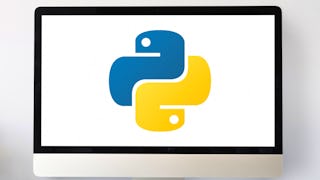![[Video thumbnail] 10 Recession Proof Job Fields to Explore](https://images.ctfassets.net/wp1lcwdav1p1/5Fc4etdqIB7OyAFPKTNjTo/87ffbbe8da323158860e8a684dcee862/maxresdefault__13_.jpg?w=330&h=216&q=60&fit=fill&f=faces&fm=jpg&fl=progressive)
10 Recession-Proof Jobs for Greater Career Stability (VIDEO)
Worried about job security in a shaky economy? You're not alone. But some career paths offer more stability than others, even during recessions.
March 11, 2025
Article
A career path can be defined as a series of jobs that lead you closer to your career goals and vision for life. Define your career path, explore your career potential, and begin charting a career path that aligns with your goals with these resources.

Explore career possibilities with these popular programs

Skills you'll gain: Vibe coding, Brainstorming, Planning, Generative AI, Content Creation, Artificial Intelligence, Data Analysis, Presentations, Data Visualization, Business Communication, Responsible AI, Research, Project Management, Machine Learning
Beginner · Professional Certificate · 3 - 6 Months

Skills you'll gain: Data Import/Export, Programming Principles, Web Scraping, File I/O, Python Programming, Jupyter, Data Structures, Pandas (Python Package), Data Manipulation, JSON, Computer Programming, Restful API, NumPy, Object Oriented Programming (OOP), Application Programming Interface (API), Automation, Data Analysis
Beginner · Course · 1 - 3 Months

Skills you'll gain: Quality Management, Project Closure, Scope Management, Team Management, Sprint Retrospectives, Project Management, Project Planning, Agile Project Management, Quality Assurance, Backlogs, Team Leadership, Project Scoping, Project Management Life Cycle, Stakeholder Analysis, Project Controls, Project Risk Management, Project Implementation, Change Management, Interviewing Skills, Applicant Tracking Systems
Build toward a degree
Beginner · Professional Certificate · 3 - 6 Months
A career path can be defined as a series of jobs that lead you closer to your career goals and vision for life. Some people follow a linear path through one field, advancing into roles with more responsibilities and higher salaries. Others shift companies, industries, or roles more frequently and accumulate experience in various roles.
You might wonder what you can do to steer your career in your desired direction. Should you stick to a linear path and seek advancement in a single field, or should you take on diverse roles and explore multiple paths?
Both approaches can lead to fulfillment when you clarify your vision for the future. A linear career path could mean gaining a deeper understanding of a field and becoming a leader or specialist. In contrast, a multi-directional career path could mean accumulating diverse knowledge and adapting quickly to an ever-changing professional landscape.
Interested in exploring your career path options? Learn more about preparing for a career change or earning a career path discovery specialization.
Interested in advancing your career? Read about tips you can use to advance your career and how to set goals for your professional development.
Interested in a new job? Learn to conduct a successful job search with Meta's Job Search with GenAI course or explore resources for your next career move.
Ready to start learning? Explore our catalog of career development and professional development courses for beginners and experienced professionals.
Choosing the right career starts with understanding your strengths, interests, and values. Explore different industries and roles to see what aligns with your goals and lifestyle. Tools like career assessments and informational interviews can help you narrow down your options.
Once you’ve identified a few interesting paths, build relevant skills and set short-term goals to start moving forward confidently.
Within data science, common jobs include data scientist, data analyst, data architect, and data engineer. Data science skills can be extremely useful for business and marketing analysts, who often use system tools to extract and analyze data. It is a high-demand field and skill set, and nearly every industry uses data science in one way or another.
Learn more: Your Guide to Data Science Careers (+ How to Get Started)
Jobs that require at least a bachelor’s degree usually fall into one of seven industry categories: business and finance, education, computer science, arts and media, architecture and engineering, health care, and sciences. Specific jobs you might find in these fields that require a degree include accountants, marketing specialists, financial analysts, teachers, software developers, computer programmers, and actuaries. Mental health counselors, dieticians, and public relations specialists typically need a degree to work in their fields.